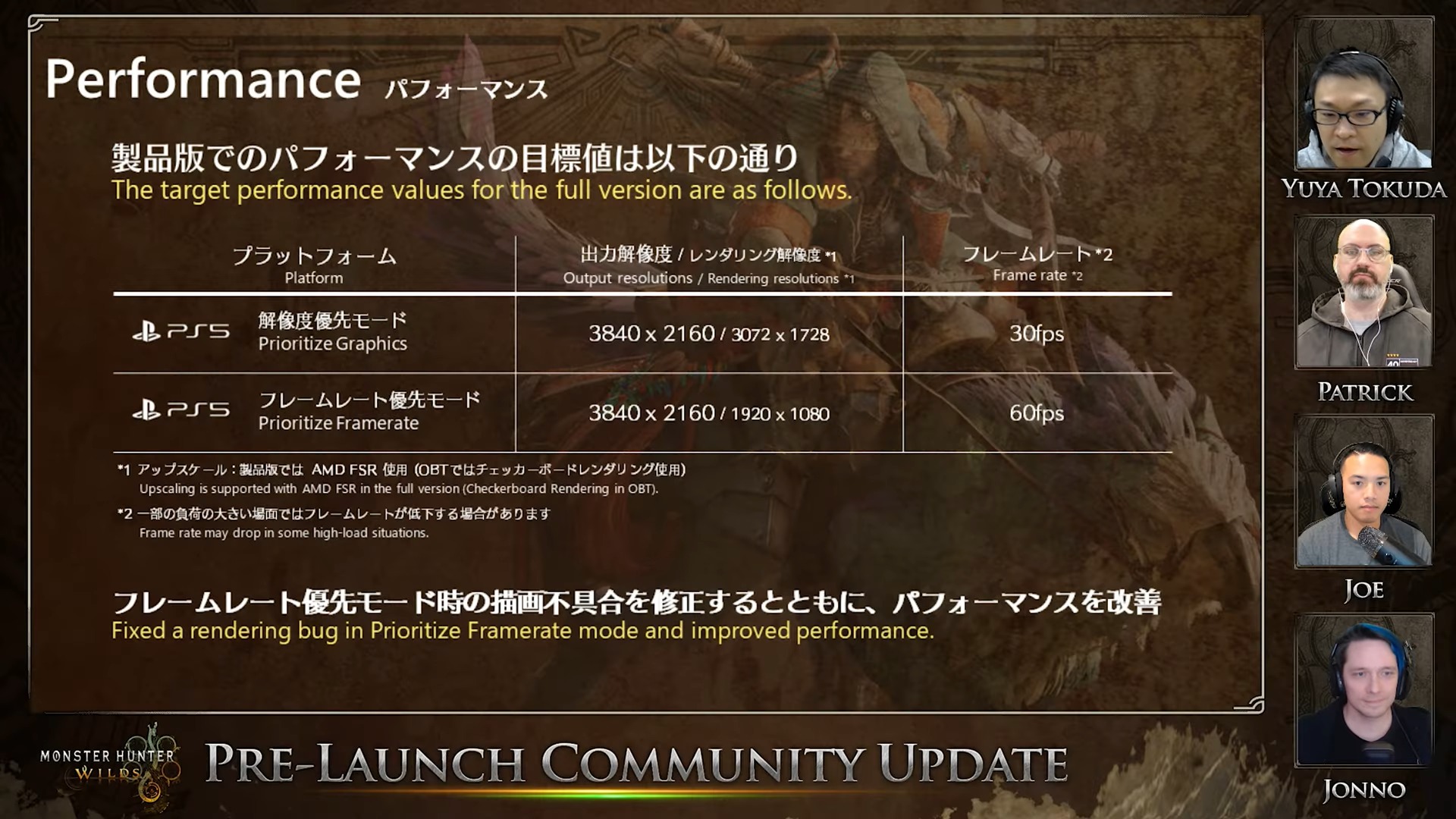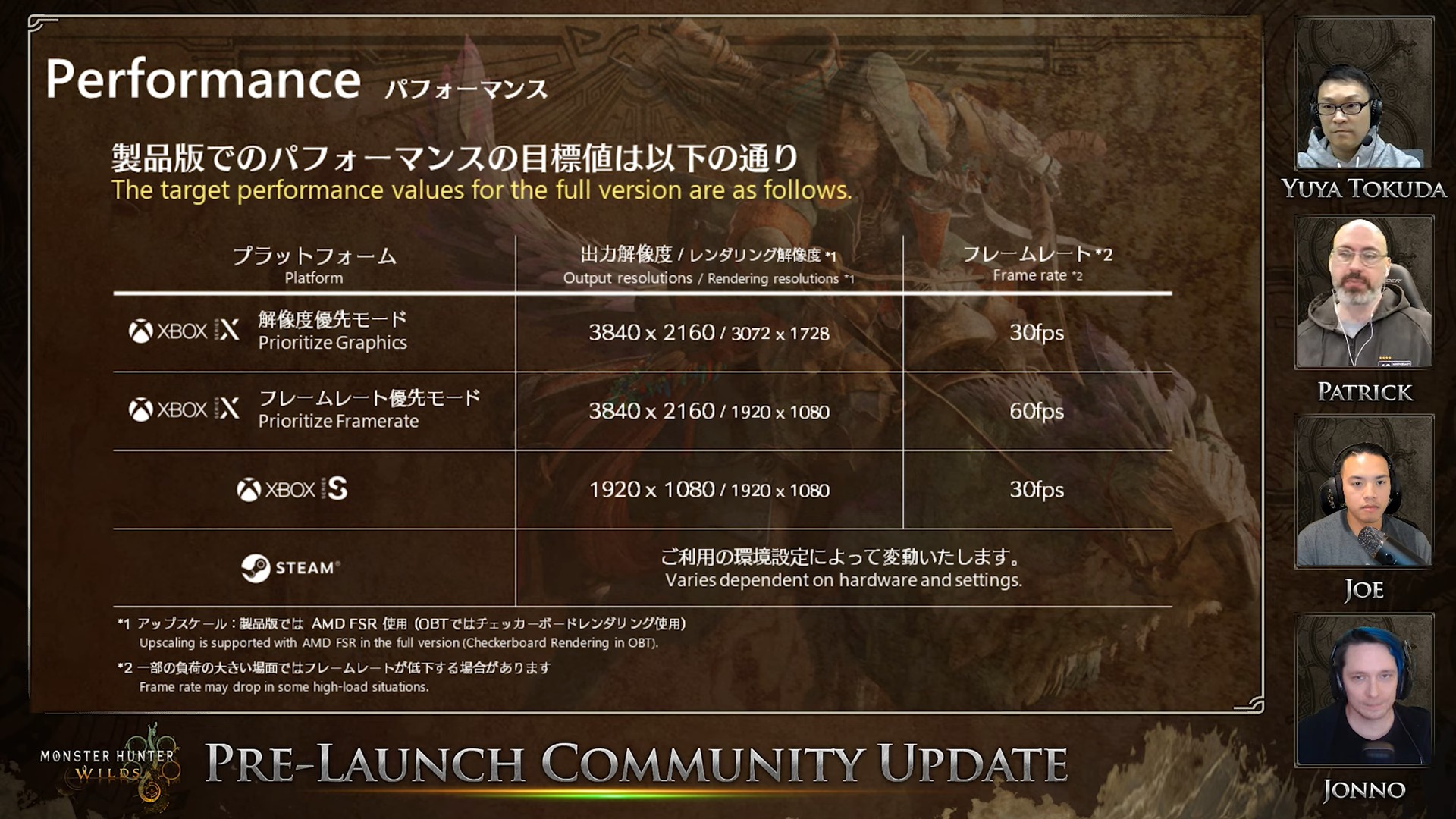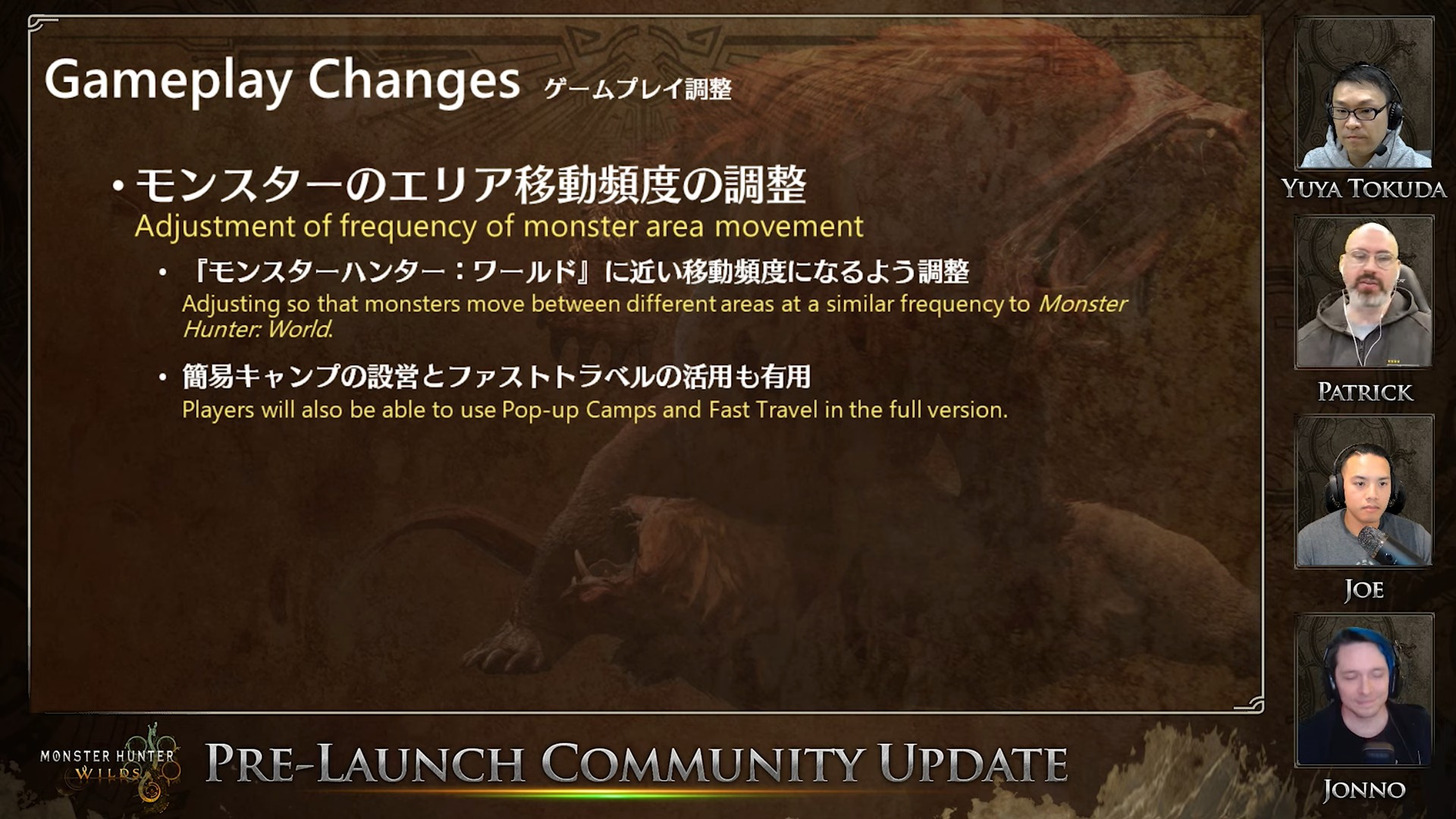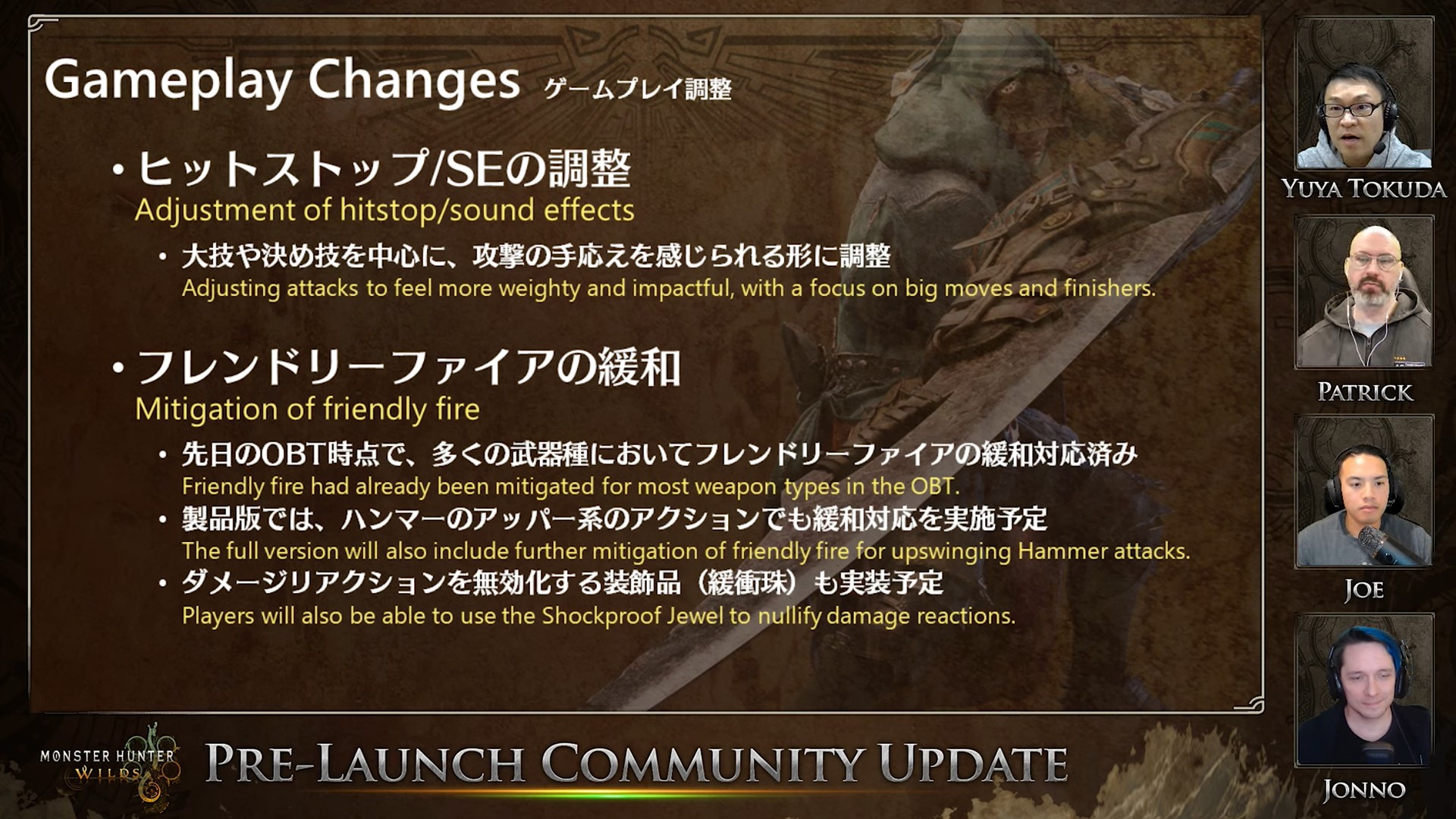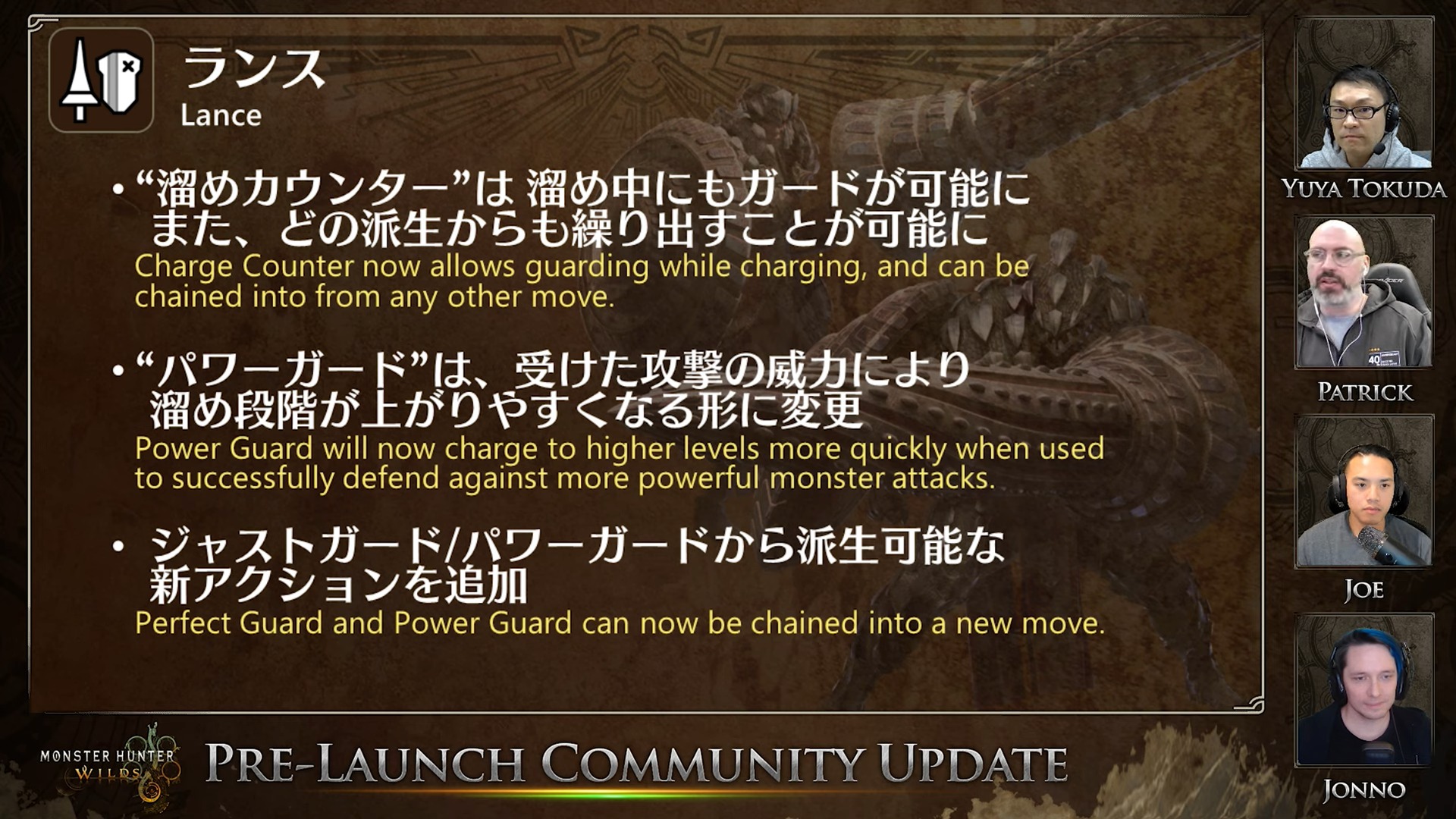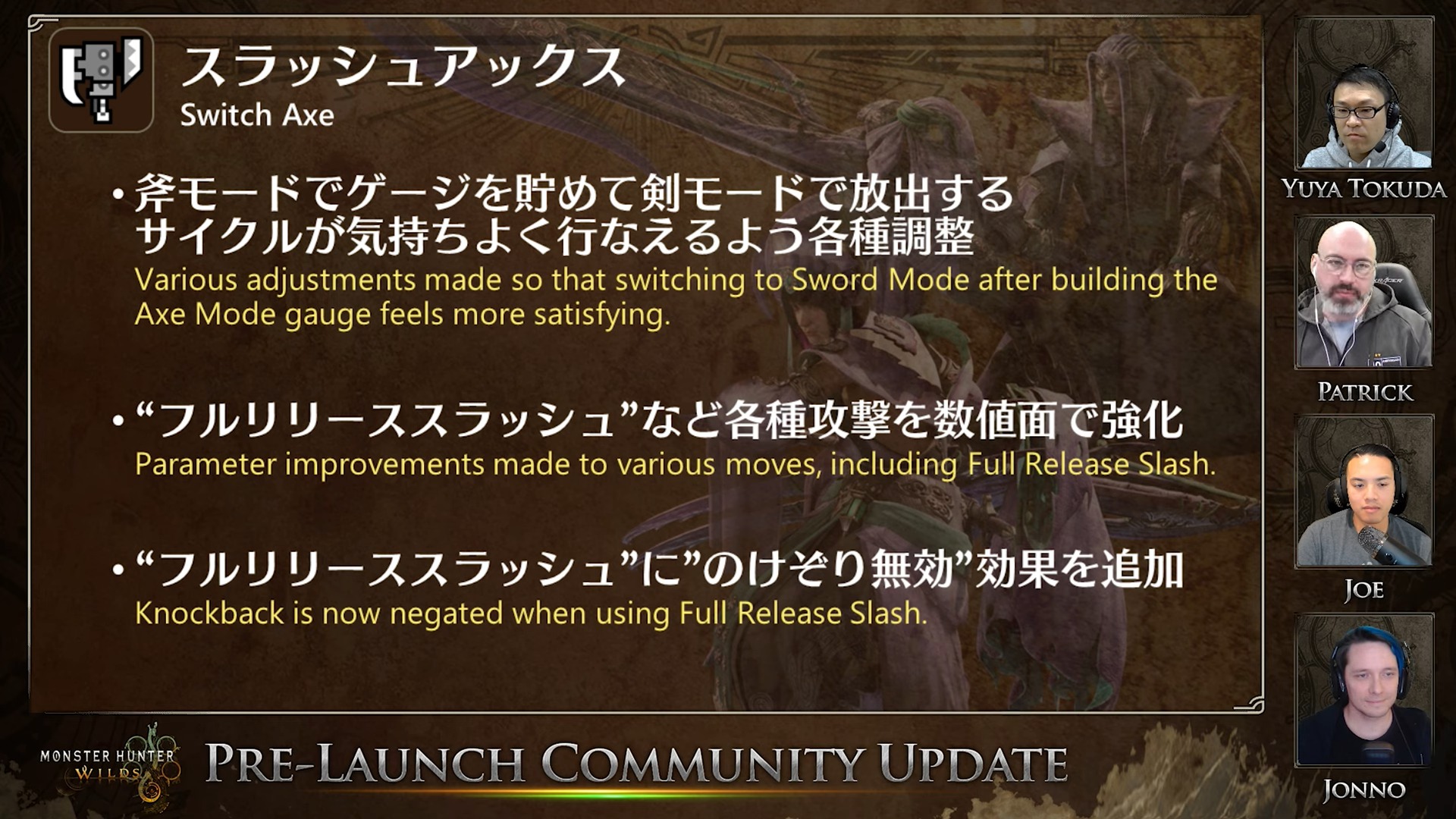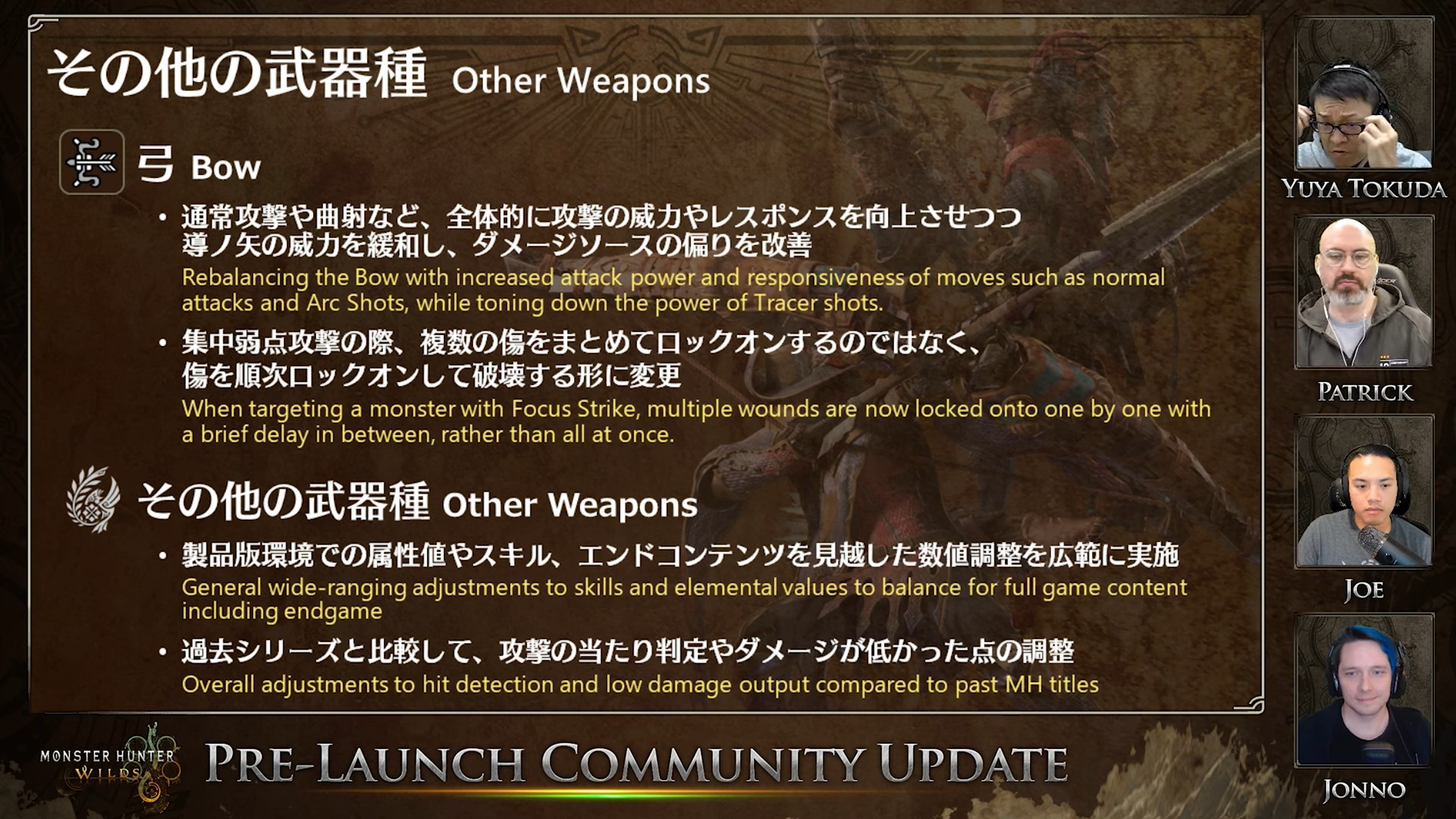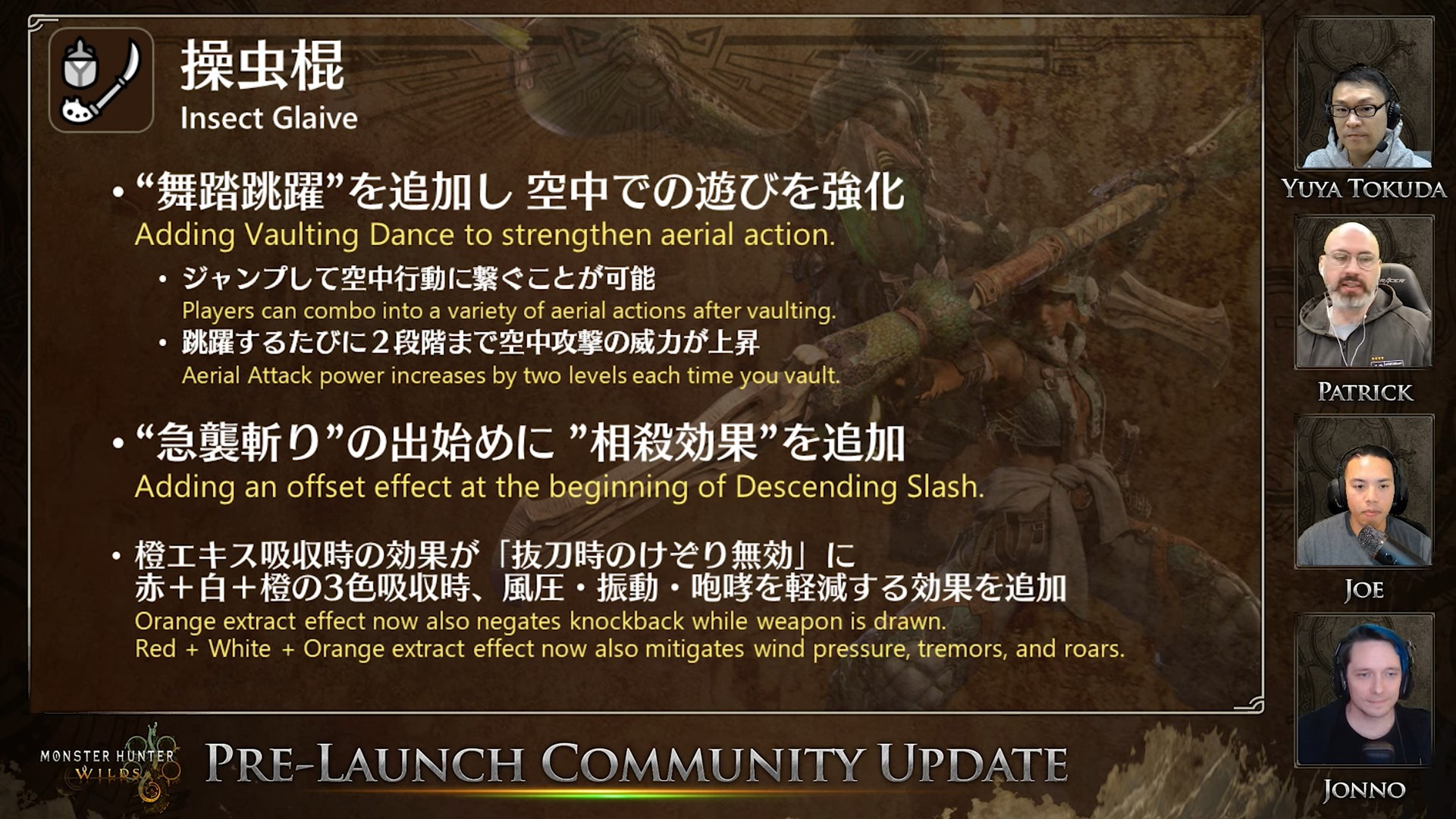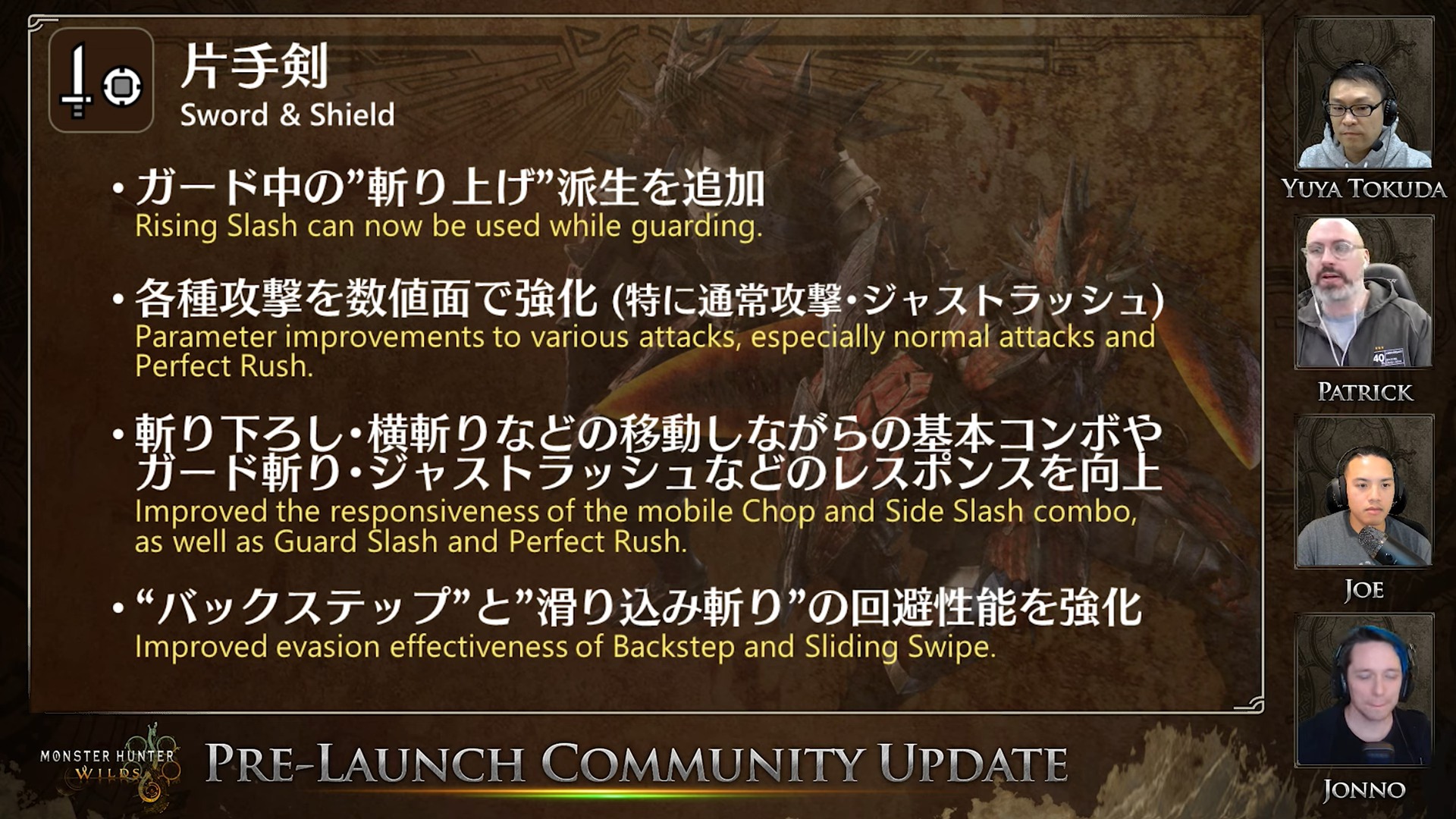It’s been over a month and a half since the general public had a sneak peek at Monster Hunter Wilds and began implementing it through its Open Beta Test, and in that time, Capcom has been busy. It has taken all the player feedback from the beta and has begun implementing it in the final version, as demonstrated through the recently uploaded Monster Hunter Wilds Pre-Launch Community Update Stream.

The first of these many changes is that Capcom has improved the game’s framerate performance and resolution considerably compared to the Open Beta Test. The game will now properly run consistently at 60fps and 1080p when playing in Prioritise Framerate Mode and 30fps and 4K Resolutions (specifically Output Resolution – 3840×2180 / Rendering Resolution – 3072×1728) in Prioritise Graphics Mode at launch.
In addition, they even fixed a bug from the Open Beta Test that prevented the game from rendering graphics in Prioritise Framerate Mode.
However, not every platform will get these privileges. According to Capcom’s performance targets, the Xbox Series X and PlayStation 5 versions of Monster Hunter Wilds are set to run at 60fps and 1080p in Prioritise Framerate Mode and 30fps and 4K Resolutions in Prioritise Graphics Mode. Yet the Xbox Series S version will only be able to run with a performance of 30 FPS (frames per second)and 1080p resolution.
Capcom has stated that Monster Hunter Wilds will receive enhanced PlayStation 5 Pro support when it goes live on release day, along with its day one patch.
For the PC version, performance and graphics will largely depend on the player’s hardware to meet the game’s PC spec requirements. However, the developers have confirmed that they are working on lowering the minimum graphics for the PC versions. In addition, they are considering releasing a PC benchmark tool to help players determine if their rigs have what it takes to play the game.
Based on player feedback, Capcom then showcased several gameplay changes it will make to Monster Hunter Wilds. For starters, monsters will not constantly flee from battling to different locations as frequently anymore because this was a bug in the beta, and players will be able to fully use Pop-Up camps and the fast travel system in the full game.
Other miscellaneous changes include adding more animation hitstop to weapon attacks to give them more impact and mitigating friendly fire among teammates in co-op, so they can’t send each other flying off the ground anymore. In addition, the Shockproof Jewel Decoration from Monster Hunter Rise: Sunbreak will be returning to allow the players to disable friendly fire altogether.
The biggest gameplay changes, however, are the weapon type balance adjustments, particularly for the Lance, Switch Axe, Insect Glaive, and Sword & Shield.
The Lance’s guard and counter capabilities have been improved, as the Charge Counter can now block attacks while charging and be chained into any of its other moves. The Power Guard can now charge faster to higher levels after blocking a monster’s strongest attacks, and the Perfect Guard and Power Guard can now lead into a brand new attack.
Switch Axe’s gameplay changes include adjustments to the switching mechanic to make transforming into Sword Mode from Axe Mode feel more satisfying. Several moves’ attack powers have been improved, and the Full Release Slash can now grant the player Knockback negation when being executed.
The Sword & Shield’s Rising Slash can now be used while guarding. Several of its moves, like the Perfect Rush, have been strengthened, and the evasiveness of the Backstep and Sliding Swipe has been improved. Additionally, the responsiveness of the Chop & Side Slash combo, Guard Slash, and Perfect Rush has been enhanced.
Insect Glaive’s aerial capabilities have been significantly improved compared to the Vaulting Dance move is back. Also, you can combo into different moves after vaulting, and the Vaulting Dance’s attack power increases by two levels each time you vault. Other changes for Insect Glaive include adding an Offset effect at the beginning of Descending Slash so you can use it to counter monster attacks, gaining Knockback Negation while obtaining an Orange Extract, and gaining mitigation for wind pressure, tremors, and roars when you have all three Extracts.
The Bow also has some changes planned, such as buffing its normal and Arc Shot attacks, nerfing the attack power of Tracer Shots, and delaying the lock-on time for Focus Strike so it targets wounds one by one instead of all of them at once.
Finally, all weapons will receive skill and elemental value adjustments for the full game’s content while also rebalancing each weapon type’s hit detention and certain moves that had low damage output in previous Monster Hunter Games.
All these gameplay changes has made me want Monster Hunter Wilds even more than ever before

February 2025, cannot come fast enough because these upcoming gameplay changes that Capcom’s shown off has now made Monster Hunter Wilds my most anticipated upcoming Xbox game/upcoming PC title of 2025 without a shadow of a doubt.
The framerate and performances are being fixed, Insect Glaive’s aerial attacks have been fixed back to how they were in Monster Hunter Rise, and the Lance is aiming to reclaim its crown as the king of counterattack weapon types. On top of that, the Shockproof Jewel is coming back, which means I can use Cluster Bomb Heavy Bowgun builds without messing up my teammates in co-op.
I can’t wait to test these new changes as well as 16 other awesome gameplay details I discovered from Monster Hunter Wild’s Open Beta Test when Monster Hunter Wilds launches on February 28, 2025.
Monster Hunter Wilds, the next-gen successor to one of Capcom’s best Xbox games and best PC games, Monster Hunter World, is scheduled to launch on February 28, 2025, for Xbox Series X|S, PlayStation 5, and PC via Steam.


